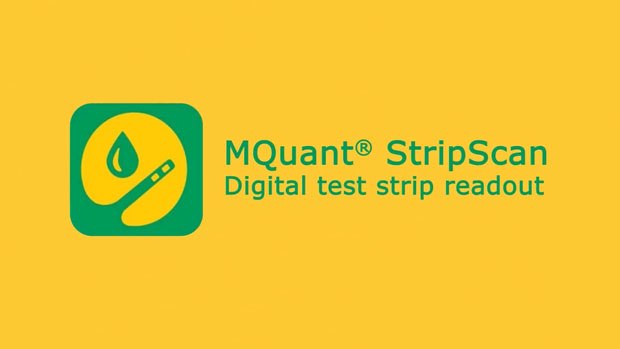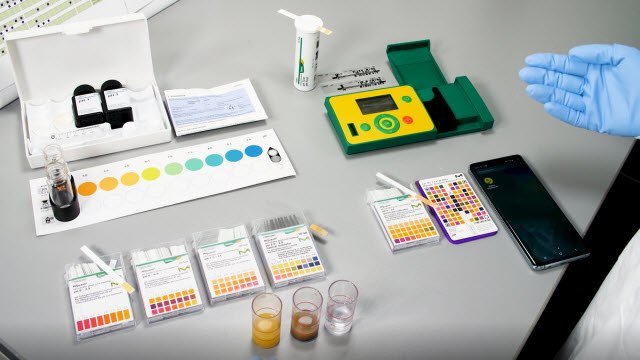pH Determination of Milk and Milk Products: A Smartphone-Based Method Using a Chemically Bound pH Indicator

Introduction
Determining the pH of milk is essential for maintaining quality, safety, and the production of dairy goods. Fresh milk typically exhibits a pH in the range of 6.7 to 6.9. Any significant deviation from this range may indicate spoilage or contamination. As milk spoils, the pH tends to decrease due to the production of lactic acid by bacteria, signaling that the milk is souring and unfit for consumption. However, due to processing, milk products such as yogurt are characterized by a lower pH range, usually between 4.0 and 4.6, while cheesemaking is optimized within a pH range of 4.6 to 4.8.1
pH-indicator strips provide an easy and cost-effective tool to determine the general pH of milk and milk products such as yogurt, cream, and buttermilk. The MQuant® StripScan app can take the guesswork out of your dairy work. Designed to complement MQuant® pH 0-14 Universal Indicator strips, our free, innovative app guides you through the test process, reads results via your mobile camera, then saves and visualizes your measurements. By using MQuant® StripScan app in combination with the MQuant® pH 0-14 Universal Indicator strips, you can get quick semi-quantitative measurements for direct in-process control with instant results for fast decision making.
The following application note describes the determination of the pH level of milk and milk products using the MQuant® pH 0-14 Universal Indicator strips in combination with the MQuant® StripScan App.
Reagents, Instruments and Materials
Reagents
- MQuant® pH-indicator strips 0-14 Universal indicator (1.09535)
Accessories
- MQuant® Card (provided with the test strip box)
- MQuant® StripScan App (can be downloaded via Apple App Store or Google Play Store)
Sample Analysis
For the analysis, follow the below steps:
- Start the App.
- Get your MQuant® pH indicator test strip and the MQuant® Card ready.
- Dip the test strip into the undiluted sample (15 – 25 °C) for approx. 2 seconds, ensuring that the reaction zone is completely immersed.
- Remove the strip from the sample and if necessary, quickly rinse the reaction zones with distilled water to remove adherent sample, e.g., if yogurt is used.
- Shake off excess liquid from the strip and dry the backside of the strip using a paper towel.
- Select the parameter pH (1.09535) in the app. Wait for 15 seconds, till the color of the pH strip completely develops (a countdown is displayed on the screen, which begins immediately after selecting the parameter pH).
- Just before the end of the countdown, place the test strip on the MQuant® Card.
- After the waiting time has elapsed, place the MQuant® Card with the test strip within the viewfinder on your phone screen, and align the camera along the reference points.
- The picture is captured automatically by the camera of the smartphone.
- The result is displayed on the screen.
Results
Comparison with visual evaluation, Reflectoquant® pH test (1.16894), and pH electrode seen in Table 1.
For more information
- Applications see SigmaAldrich.com/wfa-applications
References
To continue reading please sign in or create an account.
Don't Have An Account?
